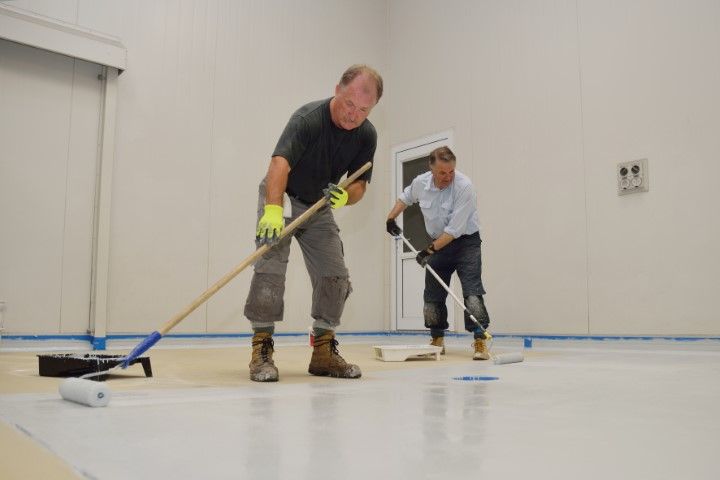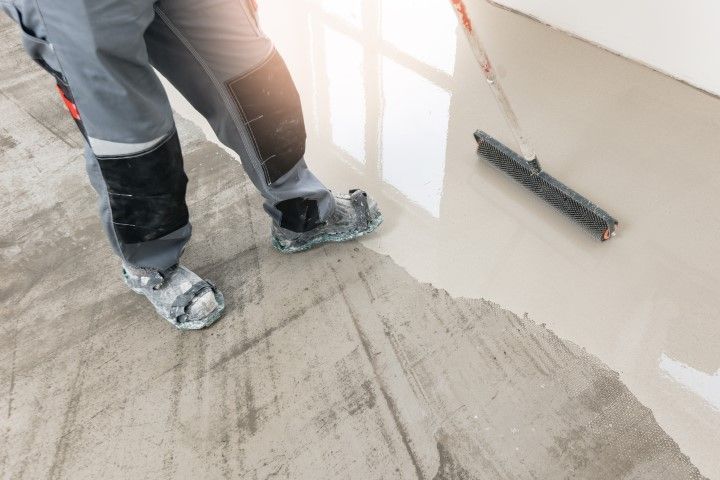Urethane Cement Installation in Alameda CA
When you are planning a urethane cement flooring project, it is important to understand both the time and cost involved. Urethane cement is a durable flooring solution commonly used in commercial kitchens, breweries, warehouses, and manufacturing plants. It offers excellent resistance to moisture, heat, and chemicals, but installing it requires careful planning. Before you begin, it helps to know what factors can affect your budget and project timeline so you can make informed decisions.
Preparation and Surface Condition
One of the most important steps before installing urethane cement in Alameda, CA is preparing the surface. Any cracks, old coatings, grease, or moisture must be removed. This process can take time and may require specialized equipment like grinders or shot blasters. If your concrete is damaged or uneven, repairs will add to the cost. Proper preparation ensures the new floor bonds correctly and lasts longer, so it’s worth investing in this phase.
Project Size and Thickness of the System
The overall square footage and the thickness of the urethane cement layer will significantly influence both time and expense. Larger areas naturally require more material and labor. For heavy-duty environments where a thicker coating is necessary, costs can rise further due to extra product and extended cure times. Discuss with your installer how thick the system should be for your specific facility needs to avoid overspending or underbuilding.
Curing and Downtime
Urethane cement floors cure faster than many other industrial flooring systems, but you still need to plan for some downtime. Typically, light foot traffic is possible within 12–24 hours, while heavy equipment may need to wait longer. If your business operates around the clock, any downtime could mean lost revenue. Consider scheduling installation during off-hours, weekends, or holidays to reduce the impact on your operations. Keep in mind that expedited timelines or after-hours work may come with higher labor rates.

Additional Features and Customization
Every project is unique. If you require extra features such as cove bases, slope-to-drain designs, or decorative quartz broadcast into the surface, your costs will increase accordingly. These upgrades can add value and improve safety, but they also require more labor and materials. Be sure to communicate any special requirements upfront so your contractor can give you a clear estimate and project schedule.
We understand that time and budget are critical for your operations. Our experienced team can help you evaluate your facility’s needs and recommend the most efficient urethane cement system for your space. We’ll walk you through each step, from preparation and product selection to scheduling and final walkthrough. If you’re ready to learn more about how urethane cement flooring or concrete polishing and staining can protect your facility while staying on budget and on schedule, contact us today for a free consultation and detailed quote. We’re here to help you create a reliable, long-lasting floor with minimal disruption to your business.
Moisture Tolerance: Why Urethane Cement Excels in Wet Areas
Choosing the right flooring for wet or damp spaces can be a big challenge. You want something strong enough to resist moisture, safe for everyone who walks on it, and easy to keep clean. Urethane cement is one of the top solutions for these needs. Whether you manage a food processing plant, a commercial kitchen, or an industrial facility, this flooring can stand up to constant water exposure without breaking down. Let’s explore four reasons why urethane cement is the best choice for areas where moisture is always a concern.
Superior Bonding to Concrete
One of the main reasons urethane cement works so well in wet areas is its excellent bond to concrete. Even when there is moisture vapor coming up through the slab, this material adheres securely without bubbling or peeling. Many other floor coatings fail when water pressure builds underneath, but urethane cement resists this problem. Its unique chemical makeup allows it to cure and stick even if the surface isn’t bone dry.
High Chemical and Thermal Resistance
In spaces where water, cleaning solutions, and hot liquids spill onto the floor, urethane cement holds up better than many other options. It can resist harsh chemicals and high temperatures without damage. This is especially important in places like breweries, commercial kitchens, and food plants, where daily washdowns and chemical exposure are common. Even with frequent cleaning, the surface stays intact and safe.
Non-Slip Surface for Safety
Wet areas often create slip hazards, leading to injuries or accidents. Urethane cement can be applied with different textures to create a slip-resistant finish. This improves safety for workers and visitors who need stable footing even when the floor is wet. A textured surface can help meet safety regulations and lower the risk of falls.
Easy Cleaning and Hygiene
Another key reason urethane cement excels in moist environments is how easy it is to clean. The seamless surface prevents water, bacteria, and dirt from getting into cracks or joints. This makes it much easier to maintain a hygienic environment. Many facilities need to meet strict health codes, and a smooth, sealed floor helps you comply without extra work. Regular washing and disinfecting are simple because nothing seeps beneath the surface.
Overall, urethane cement flooring provides an unmatched combination of durability, moisture resistance, and safety. These qualities make it a smart investment for any business that deals with wet conditions every day. If you are planning to upgrade your flooring or need a system that can handle constant moisture, we are here to help. Our team has years of experience installing urethane cement floors or epoxy coatings in many different industries. We will assess your space, recommend the best approach, and complete the job with care and skill. Don’t let water damage or slippery surfaces slow down your operations.
Choosing the Right Thickness for Your Urethane Cement Floor
When installing a urethane cement floor, it’s important to think about how thick the floor should be. The right thickness affects how well the floor will perform over time. A floor that is too thin may not stand up to heavy use, while a floor that is too thick could cost more than necessary. By learning about the different options, you can make the best choice for your space, whether it’s a commercial kitchen, a warehouse, or a food processing plant. Urethane cement flooring systems are popular because they are strong, easy to clean, and can handle harsh conditions like moisture and chemicals. However, not every area needs the same level of protection. Here are some factors to consider when deciding on the right thickness:
Type of Traffic
One of the biggest things to think about is how much traffic the floor will see. If your space has light foot traffic, a thinner coating—around 1/4 inch—may be enough. In areas where forklifts, carts, or heavy machinery are used every day, you should choose a thicker system, such as 3/8 inch or even 1/2 inch. This added thickness helps prevent damage from impact and abrasion.
Temperature Changes
If your floor will face extreme temperature shifts, like hot water washes or cold storage conditions, a thicker floor is better. Thicker urethane cement can handle thermal shock and will not crack or peel as easily as a thinner layer. Many food plants and breweries choose a thicker application for this reason.
Moisture Exposure
Some environments are constantly wet, which can damage floors over time. A thicker urethane cement floor has better resistance to moisture and can keep water from seeping into the concrete below. This is important for keeping your work area safe and clean.
Budget and Downtime
Thicker floors cost more in materials and labor. They may also take longer to install and cure. If you are on a tight budget or need your space back in service quickly, a thinner system might be the better choice. However, keep in mind that investing in the right thickness now can save you money on repairs later.
Industry Requirements
Certain industries have strict rules about floor surfaces. For example, food production facilities often need thicker floors that meet hygiene standards and resist chemicals. Always check local regulations or industry guidelines to be sure your floor meets the right requirements.
Long-Term Goals
Think about how long you expect the floor to last. If you need a floor that will hold up for many years without frequent maintenance, a thicker urethane cement system is worth considering. It provides a longer lifespan and can handle more stress over time.
By weighing all these factors, you can choose a thickness that balances performance, cost, and durability. Still not sure which thickness is best for your urethane cement floor? We’re here to help. Our team has experience with many industries and can guide you to the best solution for your needs. Contact us today to discuss your project and get a free estimate.

